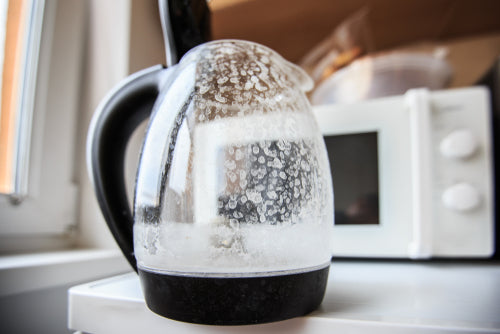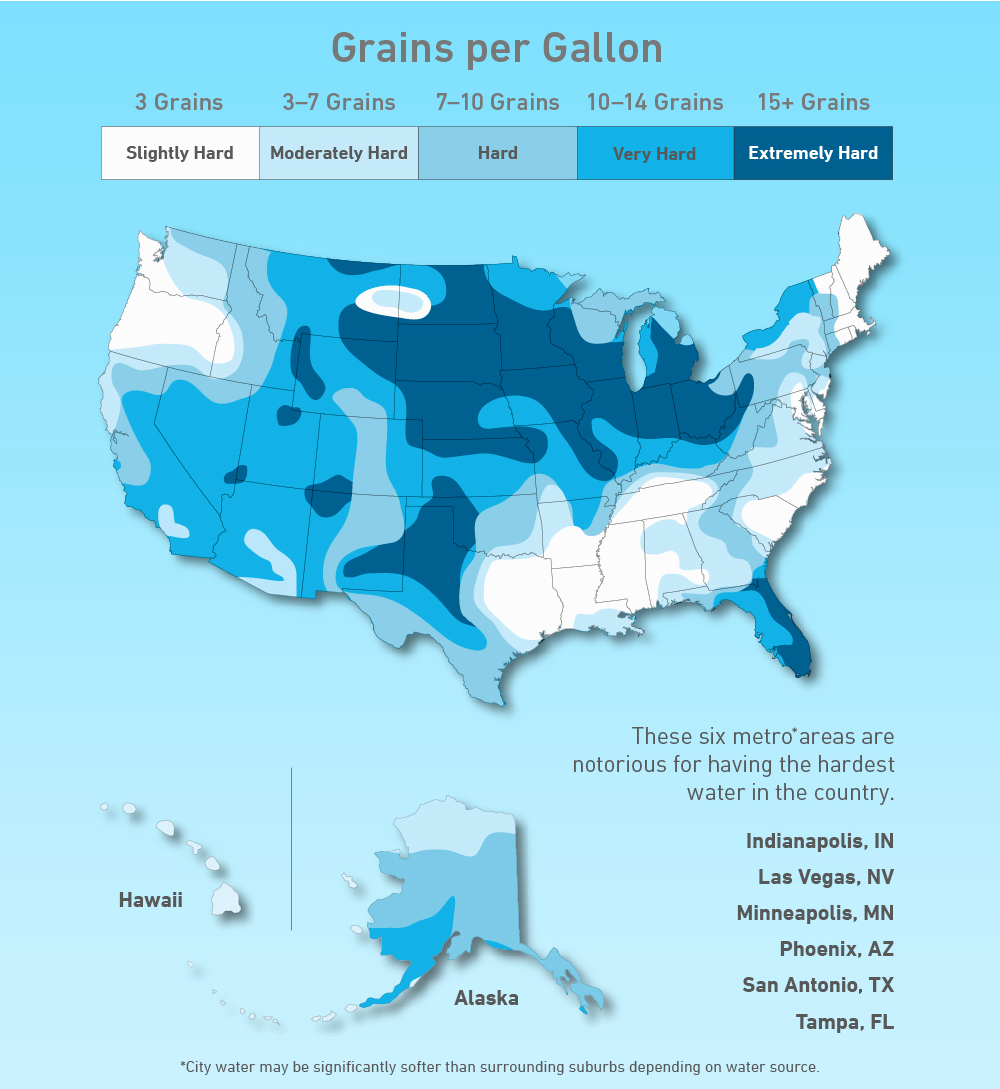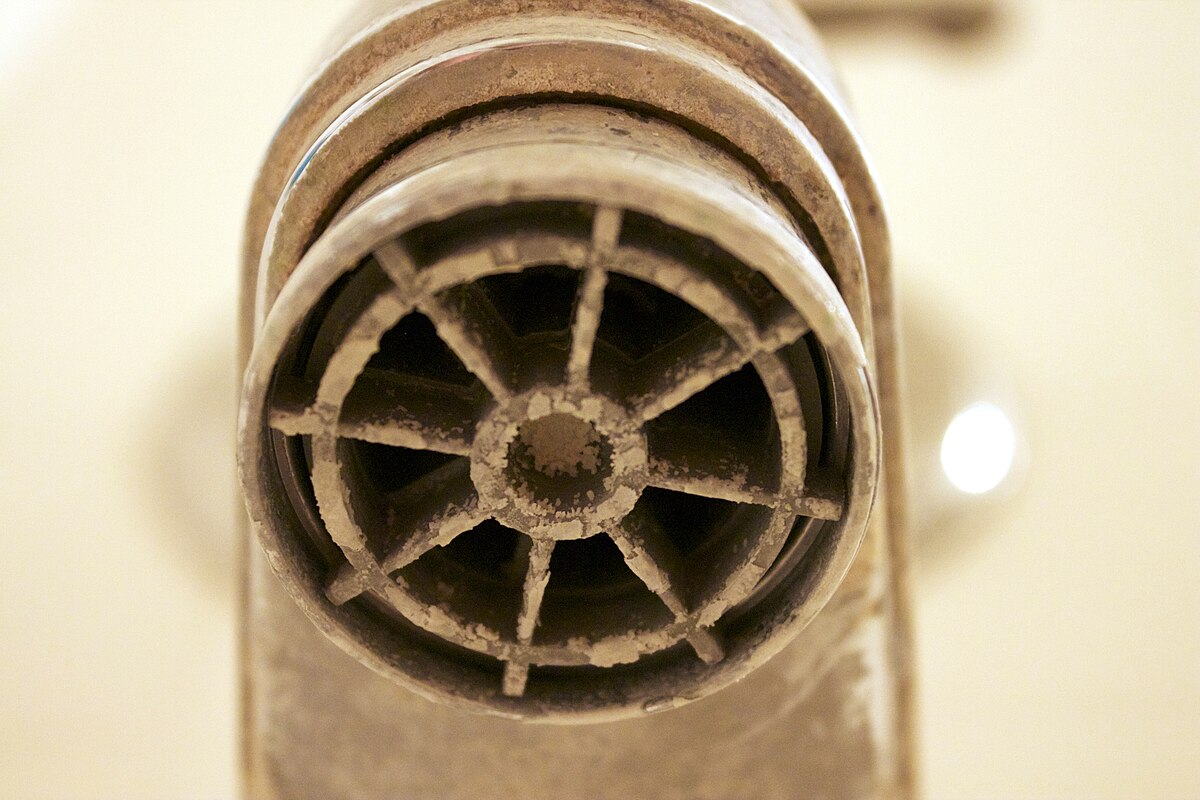
Hard Water Filters: Everything You Need to Know to Protect Your Home and Health
Share
1. Why Hard Water Can Harm Your Family and Home
Ever noticed those stubborn white spots on your faucets? Or how your skin feels dry after a shower? If so, you’re likely dealing with hard water. This isn’t just a minor annoyance. Hard water impacts over 85% of U.S. households, and its effects are far-reaching.

Hard water contains high levels of calcium and magnesium. While these minerals aren’t harmful to drink, they wreak havoc on your home. They clog pipes, reduce the lifespan of appliances, and leave streaks on glassware. But it doesn’t stop there. Hard water can also dry out your skin and hair, making daily life less comfortable.
Here’s the good news: Hard water filters can solve all these problems. With the right system, you’ll protect your home, save money, and enjoy softer water for your family.
2. What Is Hard Water, and Why Is It a Problem?
Hard water is water rich in dissolved minerals, primarily calcium and magnesium. It’s common in areas where groundwater flows through limestone or other mineral-rich rocks.
Why Is Hard Water a Problem?
- Clogs Plumbing: Mineral deposits, known as limescale, build up inside pipes, restricting water flow. Over time, this can lead to costly repairs.
- Damages Appliances: Washing machines, water heaters, and dishwashers work harder with hard water, reducing their efficiency and lifespan.
- Irritates Skin and Hair: Hard water strips natural oils, leaving skin dry and hair dull.
- Ruins Laundry: Clothes washed in hard water feel rough and fade faster.
- Stains Surfaces: White streaks and cloudy residue appear on faucets, tiles, and glassware.
Did You Know? Homes with hard water can experience up to a 29% increase in energy costs due to reduced appliance efficiency.
3. How Does a Hard Water Filter Work?
A hard water filter, often called a water softener, is designed to remove or neutralize minerals like calcium and magnesium. Let’s break down the most common types:
Ion Exchange Filters
- How It Works: Replaces calcium and magnesium ions with sodium or potassium ions.
- Effectiveness: Reduces scale buildup, making water softer and appliances more efficient.
- Ideal For: Homes with severe hard water issues.
Salt-Free Water Conditioners
- How It Works: Alters the chemical structure of minerals to prevent them from bonding to surfaces.
- Effectiveness: Doesn’t soften water but reduces scale buildup.
- Ideal For: Low-maintenance homeowners who want an eco-friendly option.
Reverse Osmosis Systems
- How It Works: Pushes water through a membrane to remove all dissolved solids, including hardness minerals.
- Effectiveness: Provides purified water but can be costly for whole-house systems.
- Ideal For: Drinking water filtration or homes with specific health concerns.
Pro Tip: For most families, an ion exchange system is the gold standard. It’s effective, reliable, and widely available.
4. Benefits of Hard Water Filters
Hard water filters do more than just improve water quality—they transform your home and health in meaningful ways.
A. Protect Your Appliances and Plumbing
- Prevent mineral deposits that clog pipes and reduce water flow.
- Extend the lifespan of water heaters, dishwashers, and washing machines.
Example: A study showed that homes with soft water have appliances that last up to 50% longer than those with hard water.
B. Improve Skin and Hair Health
- Soft water helps retain natural oils, leaving skin hydrated and hair shiny.
- Reduces irritation for people with sensitive skin or eczema.
Imagine This: No more dry, itchy skin after a shower. Just soft, smooth skin every day.
C. Save Money
- Lower energy costs by improving water heater efficiency.
- Fewer repairs and replacements for appliances and plumbing.
Data Point: Soft water can save a family of four up to $600 per year in energy and maintenance costs.
D. Enhance Your Home’s Cleanliness
- Prevents white spots and streaks on faucets, tiles, and glassware.
- Keeps laundry soft, vibrant, and free of mineral residue.
Real Results: Customers report easier cleaning and better laundry results within days of installing a hard water filter.
Takeaway
- Protect your home, appliances, and health with the right hard water filter.
- If you’re tired of dealing with clogged pipes, dry skin, and extra cleaning, consider a water softener system today.
5. Popular Hard Water Filter Products
Choosing the right hard water filter feels like a big decision. Let’s simplify it with some of the top-rated options, tailored to different needs.
Best for Budget: iSpring ED2000 Salt-Free Water Descaler
- Price: $150 (Amazon).
- Why It’s Great:
- Uses electromagnetic waves to prevent scale buildup without salt or chemicals.
- Maintenance-free and eco-friendly.
- Perfect For: Small households or renters looking for a simple solution.
- Customer Love:
- “My pipes are cleaner, and I don’t have to lug around bags of salt anymore!” – 4.4/5 stars.
Best Overall: SpringWell Salt-Based Water Softener
- Price: $2,097 (SpringWell Water).
- Why It’s Great:
- High-capacity system ideal for large families.
- Uses ion exchange to eliminate calcium and magnesium.
- Perfect For: Homes with severe hard water and high water usage.
- Customer Love:
- “My skin feels softer, and my appliances work better. Worth every penny!” – 4.8/5 stars.
Best Salt-Free Option: Pelican NaturSoft Water Conditioner
- Price: $1,700 (Pelican Water).
- Why It’s Great:
- Prevents scale buildup without adding sodium to your water.
- Certified by NSF for performance and safety.
- Perfect For: Health-conscious homeowners who want a no-maintenance solution.
- Customer Love:
- “I wanted a salt-free system, and this exceeded my expectations!” – 4.7/5 stars.
Best for Compact Spaces: GE GXSH40V Water Softener
- Price: $650 (Home Depot).
- Why It’s Great:
- Space-saving design perfect for small homes or apartments.
- Comes with SmartSoft technology to adjust settings based on usage.
- Perfect For: Smaller households or those with limited space.
- Customer Love:
- “Fits perfectly in my laundry room and works like a charm!” – 4.5/5 stars.
6. How to Choose the Best Hard Water Filter for Your Home
With so many options, picking the right filter can feel overwhelming. Follow these steps to make the best choice:
Step 1: Test Your Water
- Start Simple: Use a DIY test kit to measure water hardness in grains per gallon (gpg).
- Soft Water: <3 gpg.
- Hard Water: >7 gpg.
- Go Professional: For more detailed results, hire a lab or check with your water provider for a local water quality report.
Step 2: Match the Filter to Your Needs
- Mild Hard Water (3–7 gpg): Salt-free systems like the iSpring ED2000 work well.
- Severe Hard Water (>7 gpg): Choose a salt-based softener like the SpringWell System for best results.
- Health Concerns: Use reverse osmosis systems in combination with a water softener for drinking water.
Step 3: Factor in Long-Term Costs
- Initial Cost: Expect to pay $500–$2,500 for a system.
- Maintenance: Salt systems require regular refills ($10–$30/month). Resin replacements cost $100 every 5–10 years.
- Energy Efficiency: High-quality systems reduce energy costs by improving appliance efficiency.
Step 4: Think About Space and Installation
- Compact Homes: Look for systems with small footprints like the GE GXSH40V.
- Whole-House Systems: Ensure you have enough room near your main water line.
7. Installation and Maintenance Tips
Installing and maintaining a hard water filter doesn’t have to be complicated. Here’s how to get started:
Installation Tips
- DIY-Friendly Systems: Many salt-free options like the iSpring ED2000 are plug-and-play.
- Professional Help: For whole-house systems, hire a plumber to ensure proper installation. Expect costs between $300 and $500.
- Placement: Install filters as close to the main water line as possible for maximum efficiency.
Maintenance Tips
- For Salt-Based Systems:
- Refill salt regularly to keep the ion exchange process running smoothly.
- Clean brine tanks every six months to prevent buildup.
- For Salt-Free Systems:
- Virtually maintenance-free but check for scale on fixtures occasionally.
- Monitor Performance:
- If water pressure drops or stains reappear, check your system for clogs or worn-out components.
8. FAQs About Hard Water Filters
Addressing common questions helps build trust and clarity:
Q: Do hard water filters remove other contaminants?
- Answer: Most don’t. Pair a water softener with a reverse osmosis system for comprehensive water purification.
Q: Are salt-free systems as effective as salt-based softeners?
- Answer: Salt-free systems prevent scale buildup but don’t remove calcium and magnesium. Salt-based systems soften water and provide better results.
Q: How often should I replace my filter?
- Answer: For ion exchange systems, replace resin every 5–10 years. For salt-free systems, check descaling components every 2–3 years.
Q: Can I install a water softener myself?
- Answer: Some systems, like salt-free descalers, are DIY-friendly. Salt-based systems often require professional installation.
Q: Does a water softener affect water pressure?
- Answer: High-quality systems maintain pressure, but clogs or worn-out components can cause drops over time.
Final Thoughts: The Right Hard Water Filter for Every Home
Hard water filters are an investment in your home’s future. Whether you’re tired of scrubbing limescale off your faucets or replacing appliances prematurely, the right filter can save you time, money, and frustration.
If you’re just starting, the iSpring ED2000 offers an affordable, maintenance-free solution. For families with severe hard water, the SpringWell Salt-Based System is a powerful choice. No matter your needs, investing in a quality hard water filter ensures cleaner, softer water for years to come.


